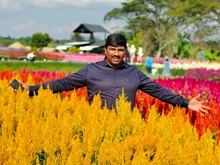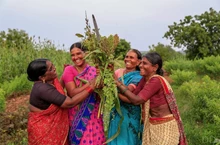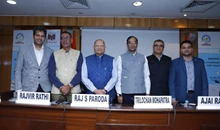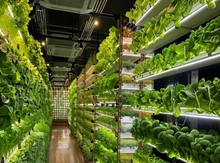
Sinha approved the JKCIP's proposal to the Department of Economic Affairs (DEA) for IFAD funding for project implementation in J&K. The project will help to sustainably increase rural household incomes by improving agriculture's pre-production, production, and post-production verticals.
The project's goal is to boost farmers' competitiveness through a value chain approach that focuses on exporting high-value agricultural commodities and developing business incubation centres and start-up support. The Competitiveness Improvement of Agriculture and Allied Sectors in the Union Territory of Jammu and Kashmir (JKCIP) programme consists of four components, including value chain support with an export focus, incubation and start-up assistance, assistance to vulnerable communities, and project management. The project would be implemented across all districts in J&K over a seven-year period (2023-2030).
"The project will have a number of positive outcomes that will further complement the growth of agriculture and allied sectors in J&K, such as export promotion of potential agricultural commodities and GGAP practices that would encourage export promotion, such as GI tagging, promotion of niche crops, certifications, quality control, laboratory/logistic support, branding facilities, marketing platforms, and development of an organized value chain," said Atal Dulloo, Additional Chief Secretary (ACS), Agriculture Production Department.
"The project will also support activities focusing on tribal and other vulnerable communities which inhabit some of the most vulnerable landscapes such as hillsides, rangelands, semi-arid and arid lands and rely on climate-sensitive natural resources to make a living. IFAD shall promote environmentally sustainable and climate resilient agricultural practices for them," he added.
JKCIP implementation is part of the government's focused activities to look beyond the goals of the Holistic Agricultural Development Plan (HADP) to capture opportunities in global trade by leveraging J&K's competitive advantage, namely agro-climatic diversity, a monopoly in the production of default organic crops (Walnut, almond, cherries), year-round vegetable production, niche crop benefit, and pristine climate, which catalyzes the opportunity to export high-value agricultural products.
Aside from HADP provisions, JKCIP will implement concerted measures to create an enabling environment for agricultural sector reform and better price realization. APD, in collaboration with the Apex Committee chaired by Dr. Mangla Rai, has prepared an export promotion plan that will be ratified by the Apex Committee on March 1 and 3, at SKUAST-Jammu. Following ratification, the plan will become an integral part of the IFAD project.
The project will also encourage complementarity and convergence with the Holistic Agriculture Development Plan by identifying common activities for financing with a focus on enhancing tribal and other vulnerable communities' livelihoods.
Another major goal of the IFAD project is to establish incubation centres to skill more than 2.5 lac entrepreneurs targeted under HADP projects, in addition to providing adequate support for training of trainers, demonstration setups, entrepreneurship development, and facilitating collaboration with research institutions such as ICAR, NFDB, and NDDB. It will also enable and promote the establishment of agricultural start-ups.
The project includes a variety of interventions to support agriculture's commercialization and sustainability, including the promotion of 300 new Agri-tech start-ups, the establishment of 60 vegetable, 117 Aromatic/Red rice, Guchi, Kashmiri Chilli, saffron, and medicinal plant production clusters, as well as the establishment of 20 vegetable seed, 20 potato seed, and 40 oil and pulse seed clusters.
The project intends to establish six mini-Centers of Excellence with 24 satellite centres for niche agricultural products and four mini-Centers of Excellence for fruit and nut crops, as well as three export hubs and two business incubation centres.
It also intends to establish 60,000 integrated farming models for marginalized and nomadic communities, as well as 200 horticultural nurseries. In addition, the project would conduct GI tagging, aggregation, processing, and marketing of at least six agricultural and minor forest products.











